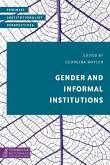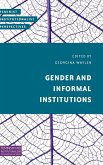In 1998, Sweden was the first country in the world to criminalise the purchase of sexual services, but not the sale of sex. The law represented a new prostitution regime that problematised power relations in prostitution as inherently gendered and hierarchical and made the male buyers of sexual services responsible for the act of prostitution. The Swedish case is critically important to the study of gendered institutional change and has been of empirical interest and global debate. Using the feminist institutionalism approach to the analysis, this study offers new insights to the Swedish case and provides a new analytical framework for micro-level analysis of institutional change that addresses the struggle for meaning, institutionalization of new gendered ideas, and the (strategic) actions of feminist actors.
Hinweis: Dieser Artikel kann nur an eine deutsche Lieferadresse ausgeliefert werden.
Hinweis: Dieser Artikel kann nur an eine deutsche Lieferadresse ausgeliefert werden.








